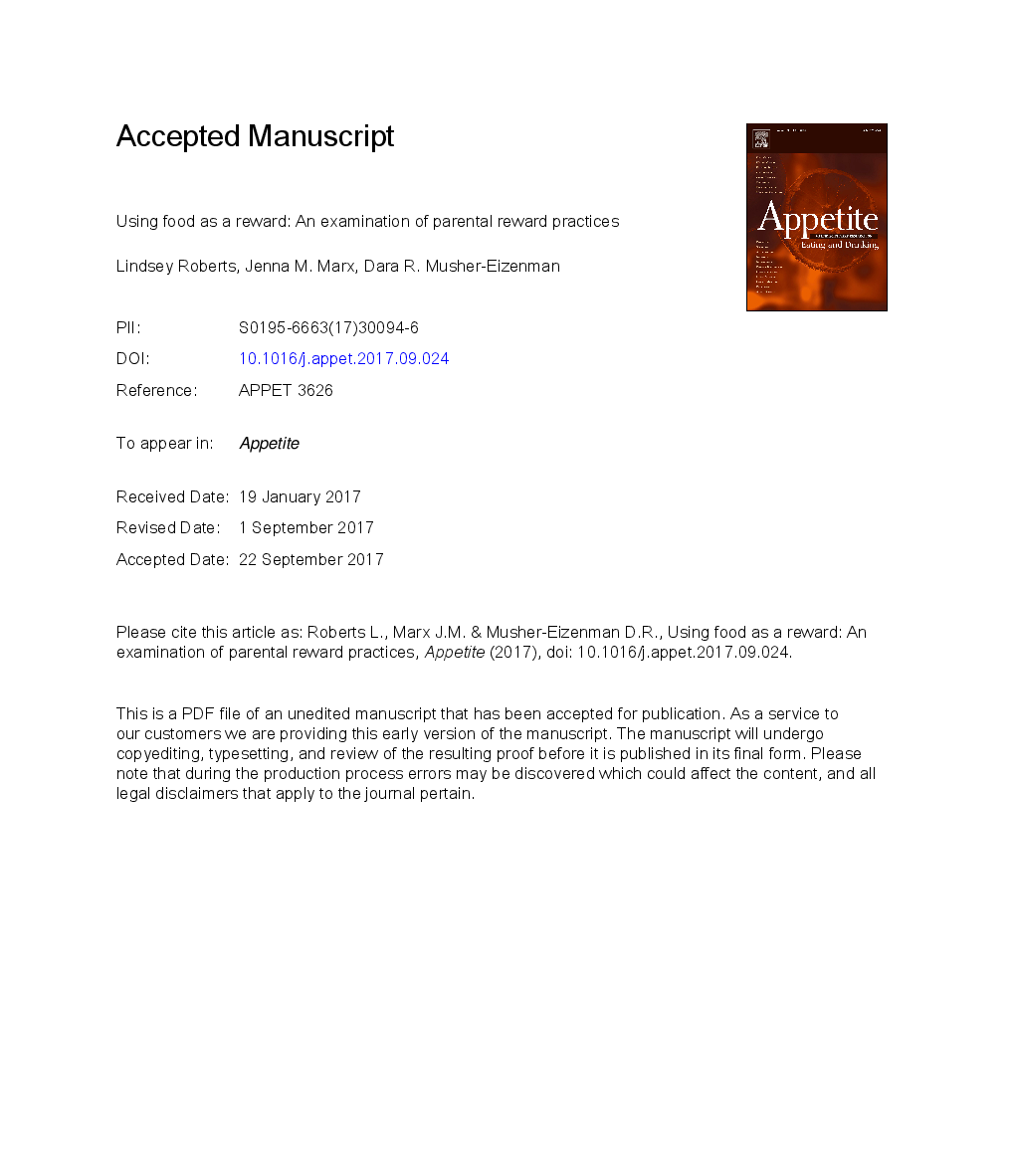ترجمه فارسی عنوان مقاله
استفاده از غذا به عنوان پاداش: بررسی معیارهای پاداش والدین
عنوان انگلیسی
Using food as a reward: An examination of parental reward practices
| کد مقاله | سال انتشار | تعداد صفحات مقاله انگلیسی |
|---|---|---|
| 112628 | 2018 | 31 صفحه PDF |
منبع

Publisher : Elsevier - Science Direct (الزویر - ساینس دایرکت)
Journal : Appetite, Volume 120, 1 January 2018, Pages 318-326
ترجمه کلمات کلیدی
جایزه، غذا خوردن، تجزیه و تحلیل مشخصات خاموش، کودک پیش دبستانی،
کلمات کلیدی انگلیسی
Reward; Eating; Latent profile analysis; Preschoolers;

